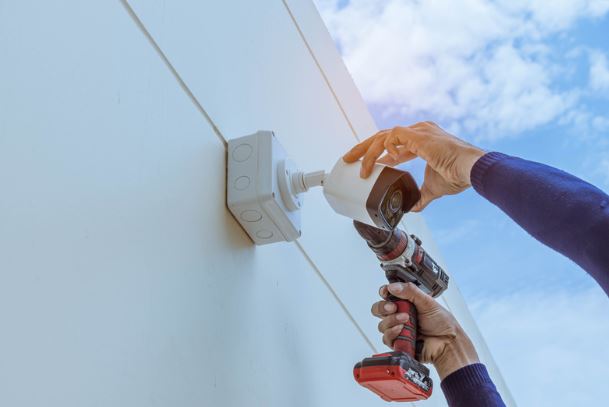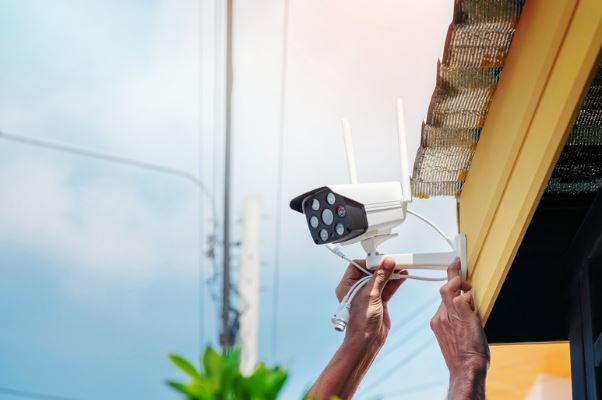Evaluating Wired vs Wireless Security Cameras – Which is Right for You?
Securing your property with the right security camera system is essential for ensuring safety and peace of mind. Wireless and wired security cameras each come with distinct benefits and drawbacks. Understanding these differences will guide you in choosing the best system for your needs.
Installation and Setup – Wired vs Wireless Security Cameras
Wireless Security Cameras:

Advantages: Wireless cameras simplify installation and offer flexibility in placement. You can position them virtually anywhere without the need for extensive wiring, and relocating them is straightforward.
Disadvantages: Wireless cameras may face connectivity issues caused by obstacles or interference. Battery-powered models necessitate regular battery changes or recharging, which can be inconvenient.
Security Cameras Wired:

Advantages: security cameras wired deliver a stable, reliable connection, minimizing the risk of signal interference. They are well-suited for high-traffic areas, providing consistent performance.
Disadvantages: The installation process of security cameras wired is more complex and time-consuming, involving the running of cables through walls or ceilings. This can be disruptive and often requires professional installation.
Image Quality and Reliability – Wired vs Wireless Security Cameras
Wireless Security Cameras:

Advantages: Many modern wireless cameras offer high-definition video quality, along with advanced features like night vision and motion detection.
Disadvantages: Network issues or interference can affect video quality, potentially compromising reliability.
Security Cameras Wired:

Advantages: Security cameras wired generally provide superior image quality and reliability, unaffected by network issues. They are ideal for continuous recording and high-resolution footage.
Disadvantages: The need for cables limits placement flexibility.
Cost and Maintenance – Wired vs Wireless Security Cameras

Wireless Security Cameras:
Advantages: Wireless cameras usually have a lower initial cost and simpler installation. Maintenance mainly involves managing batteries and ensuring stable network connectivity.
Disadvantages: Over time, costs for battery replacements and potential network upgrades may accumulate.
Security Cameras Wired:
Advantages: Despite a higher initial cost and installation expense, security cameras wired often require less ongoing maintenance and offer a more stable connection.
Disadvantages: Installation costs are higher due to the need for professional services and extensive cabling.
Security and Privacy – Wired vs Wireless Security Cameras
Wireless Security Cameras:
- Advantages: Wireless cameras enable remote access through smartphone apps, allowing for convenient, real-time monitoring from anywhere. This feature is particularly useful for homeowners or business owners who need to keep an eye on their property while away.
- Disadvantages: They may be vulnerable to hacking or unauthorized access if not adequately secured. Ensuring your wireless network is encrypted and using strong passwords is crucial to protecting your surveillance system from cyber threats.
Security Cameras Wired:
Disadvantages: Remote access requires additional configuration and is generally less convenient compared to wireless systems. Still, the trade-off is a significantly lower risk of security breaches, making wired cameras the preferred choice for maximum privacy.
Advantages: Wired cameras offer a secure, direct connection, reducing the risk of remote hacking or unauthorized access. This makes them a more secure option, particularly for sensitive environments such as banks, government buildings, or private residences with valuable assets.
When to Consult a Professional for Wired vs Wireless Security Cameras
Deciding between wired vs wireless security cameras depends on your specific requirements and preferences. If you’re uncertain about which system suits your property best, consulting a professional security installer can provide valuable insights and help you make an informed choice. A professional can assess your property’s layout, identify potential security vulnerabilities, and recommend the most effective camera system for your needs.
Quick Statistics
- Wired security cameras boast up to 99% reliability, making them less susceptible to connectivity issues.
- Wireless cameras can be installed in approximately half the time of wired systems, though they may experience signal disruptions.
- Wired systems generally provide higher quality, uninterrupted video, while wireless systems offer greater flexibility and ease of installation.
By weighing the advantages and limitations of both wired vs wireless security cameras, you can choose the system that best fits your needs and ensures effective security for your property.




